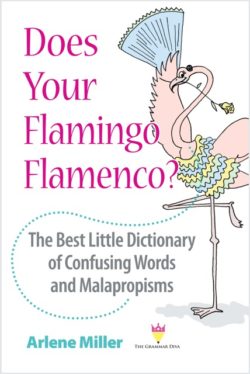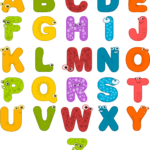 Today we finish the three Cs with Conciseness. We have already discussed Consistency and Clarity in previous posts. They do overlap. Consistency and conciseness both help clarity. And clarity is what we are striving for in both our written and spoken communication.
Today we finish the three Cs with Conciseness. We have already discussed Consistency and Clarity in previous posts. They do overlap. Consistency and conciseness both help clarity. And clarity is what we are striving for in both our written and spoken communication.
Here are some ways to make your writing more concise.
- You don’t need to use long words when a short one will do just fine. We are not asking you to write like a first grader, but short words actually have more punch.
- Following along with #1, short sentences also tend to be stronger and more effective than longer (and often meandering) ones. It is best to vary sentence length — some short, some medium, some long. Sentences that are all the same length tend to make writing choppy.
- Nominalizations add unnecessary words and weaken writing. What is a nominalization? Look at this sentence: The committee will hold a meeting to conduct a discussion about new equipment. Now look at this sentence: The committee will meet to discuss new equipment. Why say hold a meeting when you can simply say meet? Why say conduct a discussion instead of simply discuss? Nominalizations are the taking of a simple action verb and turning it into a longer and weaker noun phrase.
- Wordiness in both writing and speaking is the antithesis or conciseness. Wordiness includes filler words and phrases, excess verbiage (see #5), and redundancy (see #6). When people speak, they sometimes like to use words to fill space, hold the floor while they think, or make those to whom they are talking feel stupid.
Uh, so, well, and you know are sometimes used to fill space while the speaker thinks of what to say next. And some people like to add a phrase to the end of what they are saying to make you feel kind of stupid: Understand? Do you know what I mean? Did you get that? Right? “
- Excess verbiage includes wordy phrases in both writing and speaking. Wordy phrases can begin sentences: What I did is . . . What this means is . . . The reason is because . . . and even the double is (oh, horror!): What I did is is . . . Other wordy phrases include the fact that . . . and that being said . . .
- Redundancy will add unnecessary words to your writing and speech. Here are some common redundancies:
- 7 a.m. in the morning instead of just 7 a.m.
- close proximity instead of just close
- immediate vicinity instead of just near
- small in size instead of just small
- in order to instead of just to
- at this point in time instead of now
- as yet instead of just yet
- collaborate together instead of just collaborate, which implies together
- due to the fact that instead of just because
- each and every instead of just each or every
- personal opinion instead of just opinion
- I would appreciate it if you would instead of just please
Grammar Diva News
Just finished three successful days at the Sonoma County Fair in Santa Rosa. The new Does Your Flamingo Flamenco? was quite popular! Must be the cute cover? It is now available on Kindle as well as in paperback. Check out all our books on Amazon: it is back to school time! If you do have a Grammar Diva book, we always appreciate a review on Amazon or Goodreads — and it doesn’t have to be long! Thank you!




Great article. There is help at hand with the StyleWriter – plain English editing software.
Thanks – and thanks for the information.
Using “at this point in time” has always driven me crazy. As you noted, the word ‘now’ suffices just fine. If used, that phrase is also redundant. One should simply say “at this point” or “at this time.”
Thanks for the comment. I love “now” instead of “at this point in time.” How many letters do we save? 14?
Excellent article — and series! My own excess word habit is to include “some.” For example, “Here are some tips” instead of “here are tips.” Sure, I know I’ve only included SOME tips, but it’s still an unneeded word.
What’s the saying? Writing is easy, editing is hard.
Thanks again, Arlene.
Thanks so much for the comment. I know I do the same things: put in unnecessary words…sometimes I even see it as I do it. And, to be honest, don’t we sometimes think those extra words add something?? (like that second question mark!)
I had a boss who would use the phrase, “With that being said…” It absolutely drove me nuts. He was British and he was hired because he “sounded” smart. Oy!
Love that one! I am sure he thought that made him sound smart! Well, with that being said . . .
Some of the redundancies are needed, depending where the are placed in the sentence.
To begin a paragraph with just “To plus the infinitive” seems a bit odd. I prefer to begin with “In order to”
or ” So as to”. then again you Americans are more practical tan we are.
I agree with you, Donal. As you see in my reply a couple of comments ago, sometimes we want those extra words in there — and sometimes they do indeed add something and are preferable Thank you for the comment.